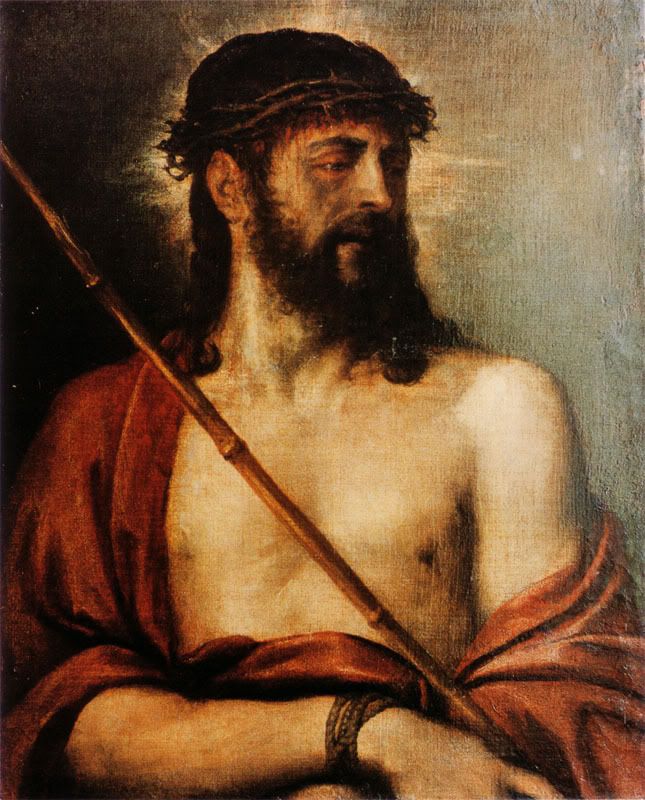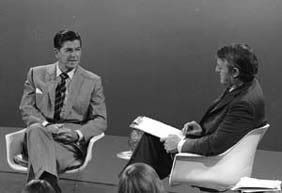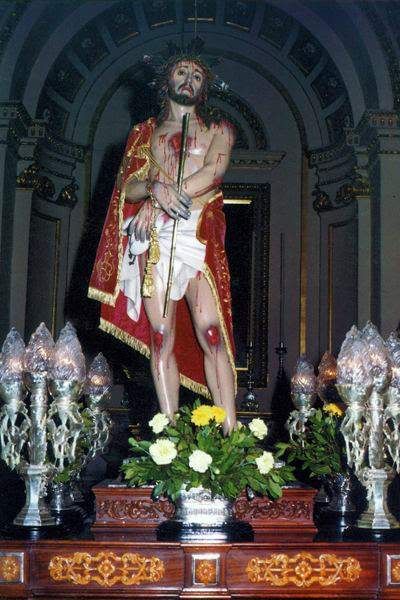Saturday, March 01, 2008
Our Blessed Lady's Saturday

Fr. Reginald Walsh, OP
From Meditation On the Passion, Father Reginald Walsh, OP 1922
THE SOLITUDE OF MARY
Good Friday Night. --- I shall see the Mother of Jesus, John, Mary Magdalen, and the other Holy Women who were with her. How great their sadness! All are plunged in desolation because Jesus is no long with them. They spend the first hours of the night in speaking of the sufferings and death of our Lord. St. John relates all that took place the Cenacle the evening before. I shall listen to the beloved disciple --- he relates how the Divine Master ate the Paschal lamb with the Twelve --- how Jesus washed their feet --- how He instituted the adorable Sacrament of His Body and Blood --- how their hearts glowed with love when He discoursed with them after the departure of Judas --- how He told them all that was to happen to Himself --- how He prayed for them, and led them from the Cenacle to the Garden of Olives. On the way He told them His Soul was sorrowful unto death --- that they would all be scandalized in Him that night. Then St. John described with many tears the awful Agony in the Garden --- the kiss of the traitor --- the seizure --- how all His Own abandoned Him. Thus does the adopted son endeavor to soothe the grief of the afflicted Mother. I, too, am Mary's child --- and should I not strive to console her by speaking lovingly to her of what Jesus has done and suffered for me?
"Oh I how sad and sore-distress'd
Was that Mother highly blest,
Of the sole-begotten One!
Can the human heart refrain
From partaking in her pain,
In that Mother's pain untold?"
Holy Saturday.--- The Sabbath now began --- a day of quiet mourning and hope. Its character is a mixed one --- the dusk of Good Friday and the dawn of Easter Sunday seem to blend together. On this day the occupants of the Cenacle are quiet, very quiet. They have much to reflect upon, much to mourn over, some much to repent of. One sees only eyes reddened with weeping --- tears still flowing --- little is spoken. The preceding day with all its terrible incidents oppresses every heart with bitter pain. Jesus, their beloved Master, the God-man had suffered --- was dead --- lay buried outside the city. Our whole life ought really to be like this. We ought never to forget that our dear Lord has suffered and died --- even though it happened long ages ago. A noble heart is never indifferent to this thought. How silently reverent some of the occupants of this house are! And yet what deep consolation they find in the thought that they have remained true to our Lord to the end. John, Magdalen, the Holy Women! See the Apostles and disciples coming one after another humbly asking admittance. Those within full of kindness --- receiving, encouraging, and comforting them.
Peter came overwhelmed with contrition and shame confessing his sin with many tears --- all the Apostles are sad and inconsolable. They dare not think of the past, nor yet of the future. And who is now their comfort and support? Our Blessed Lady --- the Mother of their beloved Master. In the midst of all the woe and pain that rent her heart, Mary was still calm, firm, unbroken in her trust --- and a comfort to them all. Then, as now, our life, our sweetness, and our hope. Whilst the Good Shepherd Who had given His life for His flock was in Limbo consoling by His Presence the just souls confined in that dark abode, He did not forget the little flock He had left defenseless on earth.
He inspires them to seek His Mother who is to strengthen and console them in His absence --- "Having loved His Own who are in the world, He loved them to the end."
The grief of the Apostles was great, seeing their number reduced to eleven --- the thought of the ruin of Judas was bitter in the extreme. Ah, if the unhappy man, detesting his awful crime and ingratitude, had come as Peter, to cast himself at the feet of the Mother of Mercy -- -how tenderly she would have received and consoled him! What a lesson for all of us! No matter what our weakness, sinfulness, unworthiness, we need never lose heart at the remembrance of past ingratitude --- if we fly to the Refuge of Sinners, the Mother of Mercy, the Mother of Jesus --- she will gain a full pardon, and the grace of true and perfect conversion from the adorable and loving Heart of her Divine Son --- "My little children, these things I write to you, that you may not sin; but if we sin we have an advocate with the Father --- Jesus Christ the Just" (1 John ii. 1.). And we have also our advocate, the Mother of the Saviour, Who confided us to her maternal heart before expiring for love of us on the Cross.
COLLOQUY.--- Mother most pure, most holy, most kind, may the love of Jesus and of thee grow in our hearts together. May that love make us fear and hate sin and the world, Christ's enemy. Strengthen us to deny ourselves constantly and generously, confirm our faith, hope, and charity, and be with us in the hour of death. O Mary, our Mother, thou art our hope in life, and wilt be our joy for ever. From thee, dearest Mother, we receive all blessings, for through thee we have Jesus, the source of all our grace. Ah, dearest Mother, was it not as thou didst watch thy Divine Son on the Cross, that thou didst learn that immense compassion and boundless pity, which made thee the Mother of the Apostles --- the Refuge of sinners --- the Promoter of the Sacred Heart's interests in souls. Dearest Mother, let us share with thee thy sorrows --- let thy compassion grow in our hearts and make us like thee. For happy indeed, O Mother of Jesus crucified, is the soul who desires to share in thy compassion --- happier still he who really strives after it --- happiest, supremely happy, he who in compassion and gentleness becomes like thee, O Blessed Mother of God.
Saturday Night till Sunday.--- Having consoled the Apostles and comforted the Holy Women, Mary recommends all to remain in the Cenacle. Then she retires to her oratory as on the peeceding night --- to occupy herself solely with the thought of her Divine Son. See our Blessed Lady --- wrapt in deep contemplation, surrounded by numberless spirits who compassionate their suffering Queen. We may reasonably suppose that on this happy night, as the Church calls it, the Mother of God knew supernaturally all that was taking place since her Jesus' Soul was separated from His Sacred Body. Mary sees --- and I will see with her --- how the Blessed Soul descends to Limbo, accompanied by an innumerable multitude of Angels, singing hymns of praise to their triumphant King. The heavenly Spirits command the entrance to the dark prison, to open to the King of Glory --- the God of Armies, Who is I omnipotent in battle. In an instant the subterranean prison is filled with resplendent light by the presence of the Divine Redeemer --- the souls of the Just are made happy in the light of the Divinity. They recognize their God, their Liberator --- they thank Him, and exalt His mercy in canticles of praise.
The Mother of the Saviour, witness of these marvels, comprehends that an infinite price was paid for the redemption of the human race, and sees its inestimable happiness in being so gloriously and abundantly redeemed. Mary sees the new Church that Jesus had founded and enriched with His Sacraments and the treasury of His merits. She penetrates deepest mysteries by the light her Divine Son gives her, either through the ministry of Angels or directly from Himself. These sublime considerations cause great joy in the superior part of Mary's soul --- but she begs the Eternal Father to keep it from affecting her senses, for she does not wish to receive any sensible consolation whilst the Body of Jesus remains in the sepulchre unglorified. By this incomparable fidelity she shows her love for her Divine Son, of Whom she is a perfect image --- for her soul was full of joy and her body of suffering --- just as it happened to our Divine Lord through His Passion and even on the Cross.
COLLOQUY.--- O dearest Jesus, teach me to be generous --- make me generous --- to give, and not to count the cost. Grant, I beseech Thee --- oh, grant that my heart, wholly united to Thee, may be closed to Thy enemies, dead to myself and to the world --- ever open to Thee, breathing Thee alone --- above all things loving Thee. O glorious Queen of Martyrs, help me to fight bravely against my enemies --- the devil, the world, and myself --- that I may be generous and devoted in the service of thy Divine Son. O Mother of love and sorrow! Love has given thee the Cross, grant that the Cross may give me love! Heart of Mary, my Mother, transfixed with a sword of sorrow, enkindle within my heart, by thy intercession, the Divine fire which consumes thy heart --- which will enable me to practice faithfully resignation, patience, conformity to the Divine Will; to suffer courageously for the glory of God, for the salvation of souls, and for my own sanctification.
"Make me feel as thou hast felt,
Make my soul to glow and melt
With the love of Christ, my Lord."
Labels: Restorationists
Saturday Of the Third Week In Lent
Station Church:
S. Susanna alle Terme di Diocleziano

Devotions for a Lenten Saturday holy hour:
Divine Mercy Chaplet
Seven Penitential Psalms
Prayer of St. Thomas More
Threnus Prayer of Saint Augustine
Stabat Mater Dolorosa
Litany of Our Lady of Sorrows
Sorrowful Mysteries
S. Susanna alle Terme di Diocleziano

Devotions for a Lenten Saturday holy hour:
Divine Mercy Chaplet
Seven Penitential Psalms
Prayer of St. Thomas More
Threnus Prayer of Saint Augustine
Stabat Mater Dolorosa
Litany of Our Lady of Sorrows
Sorrowful Mysteries
Labels: Restorationists
March

The Meriam Farmhouse, on the Battle Road in Concord, MA, in March
1st St. David
2nd Ven. Pope Pius XII
3rd St. Katherine Drexel
5th St. John Joseph of the Cross
6th St. Rose of Viterbo
7th Bl. John Ireland and John Larke (martyrs)
8th St. John of God
11th Bl. Thomas Atkinson (martyr)
15th St. Louise de Marillac and St. Longinus
16th Bl. Robert Dalby and William Hart (martyrs)
17th St. Patrick and St. Joseph of Arimathea
18th Bl. Fra Angelico
19th St. Joseph
20th St. Cuthbert
24th St. Catherine of Sweden
25th Lady Day and St. Dismas
27th St. John Damascene
30th St. John Climacus
31st Bl. Jane of Toulouse
March, 2007 begins within the liturgical season of Lent. The Fourth Sunday in Lent ("Laetare Sunday") is March 2nd. The Fifth Sunday in Lent ("Passion Sunday") is March 9th. The Sixth Sunday in Lent, "Palm Sunday" is March 16th, beginning Holy Week. Monday In Holy Week is March 17th, which would normally be St. Patrick's Day, though the saint's feast is not observed due to its falling in Holy Week this year. Tuesday March 18th is Tuesday In Holy Week. Spy Wednesday is Wednesday March 19th, which would normally be the feast of Saint Joseph, but again that is not liturgically observed as it falls in Holy Week this year. Maundy Thursday is Thursday March 20th. Good Friday is Friday March 21st. Holy Saturday is Saturday March 22nd. Easter Sunday is Sunday March 23rd. This great feast begins the Season of Easter. Easter Monday is Monday March 24th. Lady Day, or Annunciation, falls on Easter Tuesday, March 25th. Sunday March 30th is Low Sunday or Divine Mercy Sunday. March 31st is Hock Monday.
Novenas commonly said During Lent and the Paschal Time include
The 30 Day Novena
The Divine Mercy Novena
The Novena To Saint Patrick
The Novena To Saint Joseph
Our Holy Father Pope Benedict XVI's published prayer intentions for the month of March, 2008 are:
General:
That the importance of forgiveness and reconciliation between individuals and peoples may be understood and that through her testimony the Church may spread Christ’s love, the source of new humanity.
Mission:
That Christians persecuted because of the Gospel in various parts of the world and in various manners may be sustained by the strength of the Holy Spirit and continue to bear witness courageously and openly to the Word of God.
Labels: Restorationists
Friday, February 29, 2008
Friday At the Foot of the Cross

"Eli, Eli, lamma sabacthani? that is, My God, my God, why hast Thou forsaken Me?" [Matthew 27: 46]
St. Matthew writes that Jesus uttered these words with a loud voice. Why did He thus utter them? Euthymius says that He thus cried out in order to show us His Divine power, inasmuch as, though He was on the point of expiring, He was able thus to cry aloud, a thing which is impossible to dying men, through their extreme exhaustion. Also, He thus cried out in order to show us the anguish in which He died. It might, perhaps, have been said that as Jesus was both God and man, by the power of His Divinity He had diminished the pains of His torments; and in order to prevent this idea, He thought fit in these words to declare that his death was more bitter than that which any man had endured, and that while the Martyrs in their torments were comforted with Divine sweetness, He, the King of Martyrs, chose to die deprived of every consolation, satisfying the utmost rigor of the Divine justice for all the sins of men. And therefore Silveira remarks that Jesus called His Father God, and not Father, because He was then regarding Him as a Judge, and not as a son regards his father.
St. Leo writes that this cry of the Lord was not a lamentation, but a doctrine, because He thus desired to teach us how great is the wickedness of sin, which, as it were, compelled God to abandon His beloved Son without a comfort, because He had taken upon Him to make satisfaction for our sins. At the same time, Jesus was not abandoned by the Divinity, nor deprived of the glory which had been communicated to His blessed soul from the first moment of His creation; but He was deprived of all that sensible relief by which God is wont to comfort His faithful servants in their sufferings; and He was left in darkness, fear, and bitterness, pangs which were deserved by us. This deprivation of the sensible consciousness of the Divine presence was also endured by Jesus in the Garden of Gethsemani; but that which He suffered on the Cross was greater and more bitter.
O Eternal Father, what offense had this Thy innocent and most obedient Son ever given Thee, that Thou shouldst punish Him with a death so bitter? Look at Him as He hangs upon this Cross, with His head tortured with thorns, as He hangs upon the three iron nails, and is supported by His Own Wounds! All have abandoned Him, even His own disciples, all deride Him upon the Cross, and blaspheme Him; and why hast Thou abandoned Him, Who hast so greatly loved Him? We must understand that Jesus had taken upon Himself the sins of the world, although He was Himself the most holy of all men, and even sanctity itself; since He had taken upon Himself to satisfy for all our sins, He seemed the greatest of all sinners; and having thus made Himself guilty for all, He offered Himself to pay the price for all. Because we had deserved to be abandoned forever in Hell to eternal despair, therefore He chose to be given up to a death deprived of every relief, that thus He might deliver us from eternal death.
Calvin, in his commentary on St. John, blasphemously asserts that Jesus Christ, in order to appease His Father, experienced all the wrath which God feels towards sinners, and felt all the pains of the damned, and particularly that of despair. O blasphemy and shocking thought! How could He satisfy for our sins by committing a sin so great as that of despair? And how could this despair, which Calvin imagines, be reconciled with the other words which Jesus uttered, Father, into Thy hands I commend My spirit? [Like 23: 46] The truth is, as St. Jerome and others explain it, that our Savior uttered this lamentation to show not His own despair, but the bitterness which He endured in a death without consolation. And, further, despair could only have been produced in Jesus Christ by a knowledge that He was hated by God; but how could God hate that Son Who, to obey his will, had offered Himself to satisfy for the sins of men? It was this very obedience in return for which the Father looked upon Him, and granted Him the salvation of the human race, as the Apostle writes, Who in the days of His flesh, offering with loud crying and tears, prayers and supplications to Him Who could save Him from death, was heard because of His reverence. [Hebrews 5: 7]
Further, this abandonment of Jesus Christ was the most dreadful suffering in all His Passion; for we know that after suffering so many bitter pangs without complaining, He lamented over this; He cried with a loud voice, and with many tears and prayers, as St. Paul tells us. Yet all these prayers and tears were poured forth in order to teach us how much He suffered to obtain the Divine mercy for us; and to enable us at the same time to comprehend how dreadful a punishment it would be to a guilty soul to be driven from God, and to be deprived forever of His love, according to the Divine threat, I will cast them forth from My house, I will not further love them. [Osee 9: 15]
St. Augustine also says that Jesus Christ was agitated at the sight of His death, but that He was so for the comfort of his servants; in order that if ever they should find themselves disturbed at their own death, they should not suppose themselves reprobates, or abandon themselves to despair, because even He was disturbed at the sight of death.
Therefore, let us give thanks to the goodness of our Savior for having been willing to take upon Himself the pains which were due to us, and thus to deliver us from eternal death; and let us labor henceforth to be grateful to this our deliverer, banishing from our hearts every affection which is not for Him. And when we find ourselves desolate in spirit, and deprived of the sense of the Divine presence, let us unite our desolation to that which Jesus Christ suffered in His death. Sometimes He hides Himself from the souls that He most loves, but He does not really leave their hearts; He aids them with His inward grace, He is not offended, if in such an abandonment we say, as He Himself said in the garden to His Divine Father, O My Father, if it be possible, let this cup pass from Me. [Matthew 26: 39] But at the same time we must add, Yet, not as I will, but as Thou wilt. [Ibid.] And if the desolation continues, we must continue the same acts of conformity to the Divine will, as He Himself repeated them for the three hours during which He prayed in the garden. [Ibid., 44] St. Francis de Sales says that Jesus is as worthy of love when He hides Himself as when He makes Himself seen. Further, he who has deserved Hell, and finds himself out of it, should say only, I will bless the Lord at all times. O Lord, I do not deserve consolations; grant that through Thy grace I may love Thee, and I am content to live in desolation as long as it pleases Thee. If the damned could thus in their pains unite themselves to the Divine will, Hell would be no longer Hell to them.
But Thou, O Lord, remove not Thy help to a distance from Me; look towards my defense. [Psalm 21: 20] O my Jesus, through the merits of Thy desolate death, deprive me not of Thy help in that great struggle which, in the hour of my death, I must maintain with Hell. At that hour all things of earth will, have deserted me and cannot help me; do not Thou abandon me, Who hast died for me, and canst alone help me in that extremity. Do this through the merits of those pains which Thou didst suffer in Thy abandonment, by which Thou hast merited for us that we should not be abandoned by the Divine grace, as we have deserved through our sins.
From The Passion and Death of Jesus Christ, by Saint Alphonsus Liguori
Labels: Restorationists
Friday Of the Third Week In Lent
Station Church:
S. Lorenzo in Lucina

Devotions for a Lenten Friday holy hour:
Dies Irae
Divine Mercy Chaplet
Seven Penitential Psalms
Prayer of St. Thomas More
Threnus Prayer of Saint Augustine
Devotions To the Holy Cross
Stations of the Cross
S. Lorenzo in Lucina

Devotions for a Lenten Friday holy hour:
Dies Irae
Divine Mercy Chaplet
Seven Penitential Psalms
Prayer of St. Thomas More
Threnus Prayer of Saint Augustine
Devotions To the Holy Cross
Stations of the Cross
Labels: Restorationists
Thursday, February 28, 2008
Two More WFB Pics I Liked

RR with WFB

I love a cluttered study. Cosmo Fishhawk, meet WFB.
As you would expect, The Corner at NRO is full of tributes.
Labels: American Patriotism Is Not A Sin
Requiescat In Pace
William F. Buckley, Jr. died yesterday at his home in Stamford, at the age of 82. He suffered from emphysema and diabetes, but the cause of death is not now known. He was found at his desk, probably writing his next column.
WFB was the model for the modern conservative and one of my great heroes. I met him briefly on two occasions, and indeed it would have been difficult for someone who moved in the conservative academic circles I once moved in to not run across him. His National Review magazine has been the guiding star for conservatives of sound mind and solid, dependable perspective since 1955. His newspaper columns and books reinforced the conservative cause. His love of the English language was exemplary. Even his love for the high life, in restrained and dignified fashion, with its harpsichord concerts, sailing ventures, cigars, and rubbing shoulders with the famous and infamous, helped shape how conservatives of my generation conduct themselves.
Buckley did as much as anyone to marry conservatism to Roman Catholicism. His own strict Catholic upbringing shaped him, and his work always reflected that. His book Nearer, My God, discussed his own religious impulses, and the problems he had with the Church after Vatican II (but also his struggles to conform and submit, like a good Catholic).
For a time in the 1960s and 1970s, WFB was everywhere. Firing Line was the longest-running TV show hosted by a single person. He famously called Gore Vidal a "goddamed faggot" to his face while the two were commenting for one of the networks during the 1968 Democrat convention after Vidal slandered his military service on the air. He ran for mayor of New York City, on the very long-shot Conservative Party ticket (such a long shot that, when asked what he would do if he won, he quipped, "Demand a recount!"). I remember even seeing him on Laugh-In.
His work gave the modern Conservative Movement a structure and discipline. It rejected as unsavory the anti-Semitic, and the conspiracy kooks. At the same time, he helped build it (along with Ronald Reagan and Russell Kirk) around certain unmoving principles, among which are limited government, more role for the states, more free enterprise and respect for property rights, distrust of social experimentation through the aegis of government, lower taxes, less regulation of business, distrust of an overweening liberal judiciary, disgust at the armed ideology of socialism both at home and abroad, the conviction that the United States has a special role to play in the liberty of the world, that socialism ought to be resisted, if necessary by force of arms, wherever it grows, that the US ought to be forthright in standing up to threats to its security, and that it ought to predominant militarily in order to carry out its true role in the world, the bringer of order and liberty in God's design for Man.
He, as much as anyone, made conservatism mainstream, respectable, and helped put it in a position from which it could govern responsibly. He even went to pains to separate conservatism from the Reagan Administration, when that government strayed from the conservative orthodoxy National Review set.
With his friend Ronald Reagan in the White House, he slipped himself more onto the cultural back-burner. Eventually, he ceded day-today control of National Review to others. Gradually, he withdrew. He cut back the production of his columns, and stopped making public speeches (he had long been a regular on the college lecture circuit).
He had outlived most of his closest friends, including John Kenneth Galbraith, and David Niven, and many of his most controversial opponents, including Arthur Schlesinger, Jr., Alger Hiss, and Norman Mailer.
Gosh, he truly was one of the guiding stars of my personal development. I had read all of his early books, and most of his others. I am personally at a loss this morning over this news. I feel the loss greatly, as I did that of Russell Kirk more than a decade ago.
V. Requiem aeternum dona ei Domine
R. Et lux perpetua luceat ei.
V. Requiescat in pace.
R. Amen.

The Conservative enfant terrible, avatar of the Right, from the days of Up From Liberalism, and God and Man At Yale, and the founding of National Review.

With Russell Kirk, probably from the 1970s or early 1980s

Leaning back in the chair, as host of Firing Line, but where is the ubiquitous No. 2 lead pencil?

Reagan on Firing Line from the 1960s.

Elder statesman of the Conservative Movement, being honored by President Bush

WFB was the model for the modern conservative and one of my great heroes. I met him briefly on two occasions, and indeed it would have been difficult for someone who moved in the conservative academic circles I once moved in to not run across him. His National Review magazine has been the guiding star for conservatives of sound mind and solid, dependable perspective since 1955. His newspaper columns and books reinforced the conservative cause. His love of the English language was exemplary. Even his love for the high life, in restrained and dignified fashion, with its harpsichord concerts, sailing ventures, cigars, and rubbing shoulders with the famous and infamous, helped shape how conservatives of my generation conduct themselves.
Buckley did as much as anyone to marry conservatism to Roman Catholicism. His own strict Catholic upbringing shaped him, and his work always reflected that. His book Nearer, My God, discussed his own religious impulses, and the problems he had with the Church after Vatican II (but also his struggles to conform and submit, like a good Catholic).
For a time in the 1960s and 1970s, WFB was everywhere. Firing Line was the longest-running TV show hosted by a single person. He famously called Gore Vidal a "goddamed faggot" to his face while the two were commenting for one of the networks during the 1968 Democrat convention after Vidal slandered his military service on the air. He ran for mayor of New York City, on the very long-shot Conservative Party ticket (such a long shot that, when asked what he would do if he won, he quipped, "Demand a recount!"). I remember even seeing him on Laugh-In.
His work gave the modern Conservative Movement a structure and discipline. It rejected as unsavory the anti-Semitic, and the conspiracy kooks. At the same time, he helped build it (along with Ronald Reagan and Russell Kirk) around certain unmoving principles, among which are limited government, more role for the states, more free enterprise and respect for property rights, distrust of social experimentation through the aegis of government, lower taxes, less regulation of business, distrust of an overweening liberal judiciary, disgust at the armed ideology of socialism both at home and abroad, the conviction that the United States has a special role to play in the liberty of the world, that socialism ought to be resisted, if necessary by force of arms, wherever it grows, that the US ought to be forthright in standing up to threats to its security, and that it ought to predominant militarily in order to carry out its true role in the world, the bringer of order and liberty in God's design for Man.
He, as much as anyone, made conservatism mainstream, respectable, and helped put it in a position from which it could govern responsibly. He even went to pains to separate conservatism from the Reagan Administration, when that government strayed from the conservative orthodoxy National Review set.
With his friend Ronald Reagan in the White House, he slipped himself more onto the cultural back-burner. Eventually, he ceded day-today control of National Review to others. Gradually, he withdrew. He cut back the production of his columns, and stopped making public speeches (he had long been a regular on the college lecture circuit).
He had outlived most of his closest friends, including John Kenneth Galbraith, and David Niven, and many of his most controversial opponents, including Arthur Schlesinger, Jr., Alger Hiss, and Norman Mailer.
Gosh, he truly was one of the guiding stars of my personal development. I had read all of his early books, and most of his others. I am personally at a loss this morning over this news. I feel the loss greatly, as I did that of Russell Kirk more than a decade ago.
V. Requiem aeternum dona ei Domine
R. Et lux perpetua luceat ei.
V. Requiescat in pace.
R. Amen.

The Conservative enfant terrible, avatar of the Right, from the days of Up From Liberalism, and God and Man At Yale, and the founding of National Review.

With Russell Kirk, probably from the 1970s or early 1980s

Leaning back in the chair, as host of Firing Line, but where is the ubiquitous No. 2 lead pencil?

Reagan on Firing Line from the 1960s.

Elder statesman of the Conservative Movement, being honored by President Bush

Labels: Requiescat In Pace
Thursday Of the Third Week In Lent
Station Church:
Ss. Cosma e Damiano in Via Sacra (Fori Imperiali)

Devotions for a Lenten Thursday holy hour:
Dies Irae
Divine Mercy Chaplet
Seven Penitential Psalms
Prayer of St. Thomas More
Threnus Prayer of Saint Augustine
Devotion To the Holy Face
Ss. Cosma e Damiano in Via Sacra (Fori Imperiali)

Devotions for a Lenten Thursday holy hour:
Dies Irae
Divine Mercy Chaplet
Seven Penitential Psalms
Prayer of St. Thomas More
Threnus Prayer of Saint Augustine
Devotion To the Holy Face
Labels: Restorationists
Wednesday, February 27, 2008
Halfway Through Lent
Lent is always a struggle. How Our Lord made it through the desert for 40 days I don't know. Even our little sacrifices become increasingly irksome to us as time goes on. Sometimes, it seems as if our Lent is always Good Friday, and never Easter. And that is how it is intended to be.
The halfway point of Lent is an excellent time to assess how you are doing in your Lenten preparation. This is a time to make adjustments in your Lenten reading, your prayer life, and your almsgiving and sacrifices. If you were unrealistic in setting your Lenten reading agenda, or if new responsibilities have crept into your life, this is the time to trim back, to concentrate on basics, to set more realistic goals that will still make a good preparation for Easter.
Most important is making a very thorough Examination of Conscience, and bringing the results prayerfully to a full sacramental confession. This Examination of Conscience is excellent.
Remember, the true purpose of Lent is to prepare us to make a worthy Communion at Easter, to fulfill our Easter obligation. If you are so good about making your confessions that you can worthily communicate every week, or even every day, fine. Wish I was one of you. But many have severe trouble confessing, and just being in a state of grace once a year for a day or two is a true obstacle for some, and for whatever reason they, we, are hard-pressed to make even the one worthy Communion required by the Church at Easter.
Thoroughly go through this Examination of Conscience now, and go over it again say on Maundy Thursday, and make your confession then or on Good Friday. Remember, keep the confession short. No self-justification. Just accuse yourself, explain as the priest requires, and be sure to include everything you can remember. Then stay out of trouble (avoid the near occasions of sin) and make a worthy Easter Communion.
I know I go into Lent every year with very ambitious agendas. I want to read this book and that one, to go through this one in weekly segments, and to try to read as much as I can of that. I want to watch this and that. I want to give up this and that.
Then reality sinks in. I just don't have enough time to read all I want. Two hours to watch The Passion of the Christ? Where will those 2 hours come from? Or the Six-plus for Jesus of Nazareth? Giving up caffeine makes me physically sick. I get irritable with all my other sacrifices. I try to offer them up, but I don't always remember to do so (except that I already have in the form of my Morning Offering). Getting up at 3:30 every Friday morning for Stations and an extended, almost 2-hour, Holy Hour is very tough. Many people I have known in my formative years would blow their brains out if they had to lead the austere life I lead daily. So how much more can I do?
Simplify. Simplify.
It all comes down to making a thorough Examination of Conscience, then using that Examination of Conscience in a sacramental confession, then making a truly worthy Communion at Easter. That is what all the preparation and sacrifice of Lent is for, to be ready for your Easter Communion.
I know the concept of one good Communion a year sounds odd to people who flock up to the Communion line every Sunday, even if they haven't been to confession in years. But, in fact, we are supposed to only make worthy Communions. And making unworthy Communions is a grievous sin (that needs to be confessed!).
So keep the priests busy in the confessional this Holy Week, just like our ancestors did. But make it short, brutally honest, without self-justification or explanation, and be truly contrite. Remember Christ's sufferings for your sins! that will help with contrition.
We do fail sometimes in our efforts to purge and atone for our sinfulness in Lent. Sometimes, we just make mistakes and forget. For instance, two weeks ago, I went to South Station early before I had to travel, and went to the McDonald's there for breakfast. Without thinking, I ordered and ate the breakfast burritos, not realizing, until over an hour later while I was re-reading St. Francis de Sales on fasting, that I had eaten sausages in those burritos, and that I had therefore unthinkingly violated my Lenten abstinence from meat. God forgives our unthinking idiocies.
If giving up caffeine is making you sick, then put it back in your routine, but limit yourself. Just one fully caffeinated cup of coffee in the morning is probably enough to stave off caffeine withdrawal. If you don't have time to read or watch everything, scale back. You can fail in some small sacrifices, if those sacrifices were above and beyond what the Church requires, and still have a successful preparation for Easter. Do not be discouraged by failure. Recognize it for what it is, mention it in confession, resolve to do better, and move on. If you can't give it up successfully, then scale back your sacrifices. Be realistic. Heavy lifetime smokers will only disappoint themselves if they try to give up smoking for Lent cold turkey.
Obey the laws of the Church, and be realistic in what you are trying to accomplish this Lent. Just following the laws of the Church gives plenty of room for accomodating your lifestyle. The actual requirements for Lenten abstinence are quite liberal, and were liberalized greatly from the mid-19th Century through Pope Pius XII and through Vatican II.
In your prayer life, resolve to do better. I know my big problem with my prayer life is my thoughts drifting away to profane, sometimes even impure topics. And if that sometimes happens right there, in a chapel, kneeling directly in front of the Blessed Sacrament, with a rigid schedule of prayers to be said every day, how often will the thoughts drift away if I pray when I am more comfortable.
Try to keep the mind focused on your prayers. Keep on topic. Don't let what was said by this person or that the night before, or what pithy rejoinder you might have made, intrude on your prayers. Try to keep distractions to a minimum. Try to shut from your mind the person loudly snoring in the back pews while you are trying to pray, or the old biddies who think the church is a substitute location for coffee house conversation (these are often the churchiest people, who feel entitled to chatter away in church).
Try even harder to set time aside for prayer, whether as a family or individually. There is great value in family prayer, as it inculcates the children in the habit of prayer. But, when it comes down to it, you must get yourself to a quiet place, shut yourself away, at church or at home, and just say your own prayers. And this must be done every day. Getting into the habit of prayer is one of the best things you can do, and the best teacher of the the habit and ways of prayer is regular recitation (either out loud or mentally) of the Psalms.
Almsgiving. It is just as much a requirement of Lent as abstinence. Be judicious in your charity. In my experience, the worst thing you can do is to give money directly to beggars. You might as well just make a direct cash donation to the local drug dealer, liquor store, or state lottery. Cut out the middleman and keep the means of self-destruction out of the hands of our unfortunate brothers or sisters. Seriously, there are many worthy charities out there, and you can give to them with confidence that the money will be well spent, and will go to feeding, clothing, housing, and treating those who need it.
Lent is a time of sacrifice, atonement, and renewal. The goal for all of us is that worthy Easter Communion. We can become better Catholics through Lenten sacrifice. We need to be better Catholics. If even a Saint Alphonsus Liguori had all sorts of sins to accuse himself of, we all certainly have as much or more. The key is to simplify, to achieve a heightened awareness of our sinfulness, recognize our individual crimes, and make a good Confession of them. Then, our Easter will not be in vain.
The halfway point of Lent is an excellent time to assess how you are doing in your Lenten preparation. This is a time to make adjustments in your Lenten reading, your prayer life, and your almsgiving and sacrifices. If you were unrealistic in setting your Lenten reading agenda, or if new responsibilities have crept into your life, this is the time to trim back, to concentrate on basics, to set more realistic goals that will still make a good preparation for Easter.
Most important is making a very thorough Examination of Conscience, and bringing the results prayerfully to a full sacramental confession. This Examination of Conscience is excellent.
Remember, the true purpose of Lent is to prepare us to make a worthy Communion at Easter, to fulfill our Easter obligation. If you are so good about making your confessions that you can worthily communicate every week, or even every day, fine. Wish I was one of you. But many have severe trouble confessing, and just being in a state of grace once a year for a day or two is a true obstacle for some, and for whatever reason they, we, are hard-pressed to make even the one worthy Communion required by the Church at Easter.
Thoroughly go through this Examination of Conscience now, and go over it again say on Maundy Thursday, and make your confession then or on Good Friday. Remember, keep the confession short. No self-justification. Just accuse yourself, explain as the priest requires, and be sure to include everything you can remember. Then stay out of trouble (avoid the near occasions of sin) and make a worthy Easter Communion.
I know I go into Lent every year with very ambitious agendas. I want to read this book and that one, to go through this one in weekly segments, and to try to read as much as I can of that. I want to watch this and that. I want to give up this and that.
Then reality sinks in. I just don't have enough time to read all I want. Two hours to watch The Passion of the Christ? Where will those 2 hours come from? Or the Six-plus for Jesus of Nazareth? Giving up caffeine makes me physically sick. I get irritable with all my other sacrifices. I try to offer them up, but I don't always remember to do so (except that I already have in the form of my Morning Offering). Getting up at 3:30 every Friday morning for Stations and an extended, almost 2-hour, Holy Hour is very tough. Many people I have known in my formative years would blow their brains out if they had to lead the austere life I lead daily. So how much more can I do?
Simplify. Simplify.
It all comes down to making a thorough Examination of Conscience, then using that Examination of Conscience in a sacramental confession, then making a truly worthy Communion at Easter. That is what all the preparation and sacrifice of Lent is for, to be ready for your Easter Communion.
I know the concept of one good Communion a year sounds odd to people who flock up to the Communion line every Sunday, even if they haven't been to confession in years. But, in fact, we are supposed to only make worthy Communions. And making unworthy Communions is a grievous sin (that needs to be confessed!).
So keep the priests busy in the confessional this Holy Week, just like our ancestors did. But make it short, brutally honest, without self-justification or explanation, and be truly contrite. Remember Christ's sufferings for your sins! that will help with contrition.
We do fail sometimes in our efforts to purge and atone for our sinfulness in Lent. Sometimes, we just make mistakes and forget. For instance, two weeks ago, I went to South Station early before I had to travel, and went to the McDonald's there for breakfast. Without thinking, I ordered and ate the breakfast burritos, not realizing, until over an hour later while I was re-reading St. Francis de Sales on fasting, that I had eaten sausages in those burritos, and that I had therefore unthinkingly violated my Lenten abstinence from meat. God forgives our unthinking idiocies.
If giving up caffeine is making you sick, then put it back in your routine, but limit yourself. Just one fully caffeinated cup of coffee in the morning is probably enough to stave off caffeine withdrawal. If you don't have time to read or watch everything, scale back. You can fail in some small sacrifices, if those sacrifices were above and beyond what the Church requires, and still have a successful preparation for Easter. Do not be discouraged by failure. Recognize it for what it is, mention it in confession, resolve to do better, and move on. If you can't give it up successfully, then scale back your sacrifices. Be realistic. Heavy lifetime smokers will only disappoint themselves if they try to give up smoking for Lent cold turkey.
Obey the laws of the Church, and be realistic in what you are trying to accomplish this Lent. Just following the laws of the Church gives plenty of room for accomodating your lifestyle. The actual requirements for Lenten abstinence are quite liberal, and were liberalized greatly from the mid-19th Century through Pope Pius XII and through Vatican II.
In your prayer life, resolve to do better. I know my big problem with my prayer life is my thoughts drifting away to profane, sometimes even impure topics. And if that sometimes happens right there, in a chapel, kneeling directly in front of the Blessed Sacrament, with a rigid schedule of prayers to be said every day, how often will the thoughts drift away if I pray when I am more comfortable.
Try to keep the mind focused on your prayers. Keep on topic. Don't let what was said by this person or that the night before, or what pithy rejoinder you might have made, intrude on your prayers. Try to keep distractions to a minimum. Try to shut from your mind the person loudly snoring in the back pews while you are trying to pray, or the old biddies who think the church is a substitute location for coffee house conversation (these are often the churchiest people, who feel entitled to chatter away in church).
Try even harder to set time aside for prayer, whether as a family or individually. There is great value in family prayer, as it inculcates the children in the habit of prayer. But, when it comes down to it, you must get yourself to a quiet place, shut yourself away, at church or at home, and just say your own prayers. And this must be done every day. Getting into the habit of prayer is one of the best things you can do, and the best teacher of the the habit and ways of prayer is regular recitation (either out loud or mentally) of the Psalms.
Almsgiving. It is just as much a requirement of Lent as abstinence. Be judicious in your charity. In my experience, the worst thing you can do is to give money directly to beggars. You might as well just make a direct cash donation to the local drug dealer, liquor store, or state lottery. Cut out the middleman and keep the means of self-destruction out of the hands of our unfortunate brothers or sisters. Seriously, there are many worthy charities out there, and you can give to them with confidence that the money will be well spent, and will go to feeding, clothing, housing, and treating those who need it.
Lent is a time of sacrifice, atonement, and renewal. The goal for all of us is that worthy Easter Communion. We can become better Catholics through Lenten sacrifice. We need to be better Catholics. If even a Saint Alphonsus Liguori had all sorts of sins to accuse himself of, we all certainly have as much or more. The key is to simplify, to achieve a heightened awareness of our sinfulness, recognize our individual crimes, and make a good Confession of them. Then, our Easter will not be in vain.
Labels: Restorationists
Wednesday Of the Third Week In Lent
Station Church:
S. Sisto (SS. Nereo e Achilleo)

Devotions for a Lenten Wednesday holy hour:
Dies Irae
Divine Mercy Chaplet
Seven Penitential Psalms & the prayers against the Seven Deadly Sins
Prayer of St. Thomas More
Threnus Prayer
Seven Prayers of St. Gregory
S. Sisto (SS. Nereo e Achilleo)

Devotions for a Lenten Wednesday holy hour:
Dies Irae
Divine Mercy Chaplet
Seven Penitential Psalms & the prayers against the Seven Deadly Sins
Prayer of St. Thomas More
Threnus Prayer
Seven Prayers of St. Gregory
Labels: Restorationists
Tuesday, February 26, 2008
The Seven Blood-Sheddings Of Our Lord
A very interesting way of adoring Our Lord's Sacrifice. Taken in part from Ven. Archbishop Fulton Sheen.
Labels: Restorationists
Tuesday Of the Third Week In Lent
Station Church: S. Pudenziana al Viminale

Devotions for a Lenten Tuesday holy hour:
Dies Irae
Divine Mercy Chaplet
Seven Penitential Psalms
Prayer of St. Thomas More
Threnus Prayer of Saint Augustine
Devotion of the Seven Last Words

Devotions for a Lenten Tuesday holy hour:
Dies Irae
Divine Mercy Chaplet
Seven Penitential Psalms
Prayer of St. Thomas More
Threnus Prayer of Saint Augustine
Devotion of the Seven Last Words
Labels: Restorationists
Monday, February 25, 2008
Monday of the Third Week In Lent
Station Church: S. Marco al Campidoglio

Devotions for a Lenten Monday holy hour:
Dies Irae
Divine Mercy Chaplet
Seven Penitential Psalms
Prayer of St. Thomas More
Threnus Prayer of Saint Augustine
Devotion of the Five Sacred Wounds

Devotions for a Lenten Monday holy hour:
Dies Irae
Divine Mercy Chaplet
Seven Penitential Psalms
Prayer of St. Thomas More
Threnus Prayer of Saint Augustine
Devotion of the Five Sacred Wounds
Labels: Restorationists
Sunday, February 24, 2008
The Third Sunday of Lent
Station Church: S. Lorenzo fuori le Mura
Devotions for a Lenten Sunday holy hour:
Divine Mercy Chaplet
Seven Penitential Psalms
Prayer of St. Thomas More
Psalter of St. Jerome
Threnus Prayer of St. Augustine
From The Liturgical Year, by Abbot Prosper Gueranger, OSB:
Ever since the promulgation of the Gospel, the power of Satan over the human body has been restricted by the virtue of the cross, at least in Christian countries; but this power resumes its sway as often as faith and the practice of Christian piety lose their influence. And here we have the origin of all those diabolical practices, which, under certain scientific names, are attempted first in secret, and then are countenanced by being assisted at by well-meaning Christians. Were it not that God and His Church intervene, such practices as these would subvert society. Christians! remember your baptismal vow; you have renounced satan: take care, then, that by a culpable ignorance you are not dragged into apostasy. It is not a phantom that you renounced at the font; he is a real and formidable being, who, as our Lord tells us, was a murderer from the beginning (Jn. 8:44).
But if we ought to dread the power he may be permitted to have over our bodies; if we ought to shun all intercourse with him, and take no share in practices over which he presides, and which are the worship he would have men give him: we ought, also, to fear the influence he is ever striving to exercise over our souls. See what God's grace has had to do in order to drive him from our soul! During this holy season, the Church is putting within your reach those grand means of victory-fasting, prayer, and almsdeeds. The sweets of peace will soon be yours, and once more you will become God's temple, for both soul and body will have regained their purity. But be not deceived; your enemy is not slain. He is irritated; penance has driven him from you; but he has sworn to return. Therefore, fear a relapse into mortal sin; and in order to nourish within you this wholesome fear, meditate upon the concluding part of our Gospel.
Our Saviour tells us that when the unclean spirit is gone out of a man, he walketh through places without water. There he writhes under his humiliation; it was added to the tortures of the hell he carries everywhere with him, and to which he fain would give some alleviation by destroying souls that have been redeemed by Christ. We read in the old Testament that sometimes, when the devils have been conquered, they have been forced to flee into some far-off wilderness: for example, the holy Archangel Raphael took the devil, that had killed Sara's husbands, and bound him in the desert of upper Egypt (Tob. 8:3). But the enemy of mankind never despairs of regaining his prey. His hatred is as active now as it was at the very beginning of the world, and he says: "I will return into my house, whence I came out." Nor will he come alone. He is determined to conquer; and therefore, he will, if he think it needed, take with him seven other spirits, even more wicked than himself. What a terrible assault is being prepared for the poor soul, unless she be on the watch, and unless the peace, which God has granted her, be one that is well armed for war! Alas! with many souls the very contrary is the case; and our Saviour describes the situation in which the devil finds them on his return: they are swept and garnished, and that is all! No precautions, no defence, no arms. One would suppose that they were waiting to give the enemy admission. Then satan, to make his repossession sure, comes with a sevenfold force. The attack is made; but there is no resistance, and straightways the wicked spirits entering in, dwell there; so that the last state becometh worse than the first; for before there was but one enemy, and now there are many.
Devotions for a Lenten Sunday holy hour:
Divine Mercy Chaplet
Seven Penitential Psalms
Prayer of St. Thomas More
Psalter of St. Jerome
Threnus Prayer of St. Augustine
From The Liturgical Year, by Abbot Prosper Gueranger, OSB:
Ever since the promulgation of the Gospel, the power of Satan over the human body has been restricted by the virtue of the cross, at least in Christian countries; but this power resumes its sway as often as faith and the practice of Christian piety lose their influence. And here we have the origin of all those diabolical practices, which, under certain scientific names, are attempted first in secret, and then are countenanced by being assisted at by well-meaning Christians. Were it not that God and His Church intervene, such practices as these would subvert society. Christians! remember your baptismal vow; you have renounced satan: take care, then, that by a culpable ignorance you are not dragged into apostasy. It is not a phantom that you renounced at the font; he is a real and formidable being, who, as our Lord tells us, was a murderer from the beginning (Jn. 8:44).
But if we ought to dread the power he may be permitted to have over our bodies; if we ought to shun all intercourse with him, and take no share in practices over which he presides, and which are the worship he would have men give him: we ought, also, to fear the influence he is ever striving to exercise over our souls. See what God's grace has had to do in order to drive him from our soul! During this holy season, the Church is putting within your reach those grand means of victory-fasting, prayer, and almsdeeds. The sweets of peace will soon be yours, and once more you will become God's temple, for both soul and body will have regained their purity. But be not deceived; your enemy is not slain. He is irritated; penance has driven him from you; but he has sworn to return. Therefore, fear a relapse into mortal sin; and in order to nourish within you this wholesome fear, meditate upon the concluding part of our Gospel.
Our Saviour tells us that when the unclean spirit is gone out of a man, he walketh through places without water. There he writhes under his humiliation; it was added to the tortures of the hell he carries everywhere with him, and to which he fain would give some alleviation by destroying souls that have been redeemed by Christ. We read in the old Testament that sometimes, when the devils have been conquered, they have been forced to flee into some far-off wilderness: for example, the holy Archangel Raphael took the devil, that had killed Sara's husbands, and bound him in the desert of upper Egypt (Tob. 8:3). But the enemy of mankind never despairs of regaining his prey. His hatred is as active now as it was at the very beginning of the world, and he says: "I will return into my house, whence I came out." Nor will he come alone. He is determined to conquer; and therefore, he will, if he think it needed, take with him seven other spirits, even more wicked than himself. What a terrible assault is being prepared for the poor soul, unless she be on the watch, and unless the peace, which God has granted her, be one that is well armed for war! Alas! with many souls the very contrary is the case; and our Saviour describes the situation in which the devil finds them on his return: they are swept and garnished, and that is all! No precautions, no defence, no arms. One would suppose that they were waiting to give the enemy admission. Then satan, to make his repossession sure, comes with a sevenfold force. The attack is made; but there is no resistance, and straightways the wicked spirits entering in, dwell there; so that the last state becometh worse than the first; for before there was but one enemy, and now there are many.
Labels: Restorationists






































































































